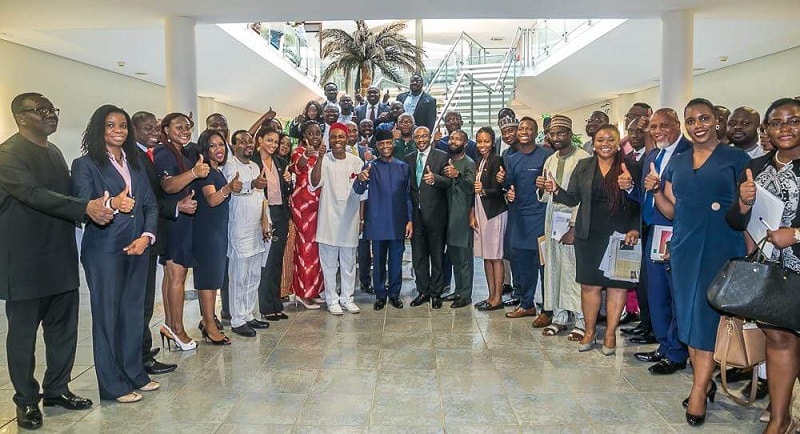In June 2018, the Nigerian Vice President, Yemi Osinbajo inaugurated the Technology and Creativity Advisory Group, as part of the Industrial Policy and Competitiveness Advisory Council that was set up by President Muhammadu Buhari in 2017.
In his remarks during the inauguration of the group, the vice president affirmed that it would enable stakeholders to contribute directly to policy formulation, articulation and the design of both sectors.
“It will also bring together existing policies and on-going work taking place at Ministerial level to the Presidential level. It will enable coherence and signal the importance that the Federal Government attaches to these sectors.”
Going by the calibre of the members of the group, especially those from the private sector, one can look forward to a significant impact on the concerned sectors of the economy. Here are some of the things we should expect from this group
An inclusive and all-embracing roadmap
The creative sector remains one of the biggest employers of labour either directly or indirectly, so promoting the sector would surely have a ripple effect on reducing unemployment while also improving on its contribution to the national income.
For the technology sector, Nigeria, which as at 2015 was ranked 134 (PDF) on the International Telecommunications Union’s ICT Development Index, dropped to the 143rd spot in 2017.
One output that’s certain from the advisory group is a roadmap that would have the sole purpose of promoting the two sectors. Hopefully, this roadmap would help improve the nation’s ICT development index while also positioning the creative industry for profitability and increasing its contribution to the national income.
The roadmap should also address every challenge in the technology sector, like government activities that are not driving broadband penetration, power, activities of the Special Anti-Robbery Squad (SARS) against techies and tech enthusiasts.
Generally, an enabling environment for entrepreneurs within the technology and creative sectors should be one of the major focus of the programme of the group.
Improved public-private partnership
The group is expected to collaborate with relevant government ministers and heads of agencies and leading business people to boost public-private partnership. The vice president attributed the reason for having the group under the Industrial Policy and Competitiveness Advisory Council to the inclusiveness and result-oriented attitude of the council.
Fifty-four per cent of members of the council are from the private sector while the rest are from the public sector, which is a fair representation of both sectors. However, there are just 4 members representing the Internet and technology sector in the council.
The advisory group has a handful of people from the technology space which can be considered as a move to further promote the sector as the group is expected to have a level of influence on policies concerning the sector.
Increased opportunities
Another expected result of activities of the group is increased opportunities available in the creative and technology sector. The first move by the vice president after the inauguration of the group was a visit to Silicon Valley with some tech entrepreneurs.
The visit, according to sources, is meant to attract investments into Nigeria’s burgeoning tech space. The visit would also allow Osinbajo attract Africans in the diaspora to mentor and support the Nigerian startup community.










